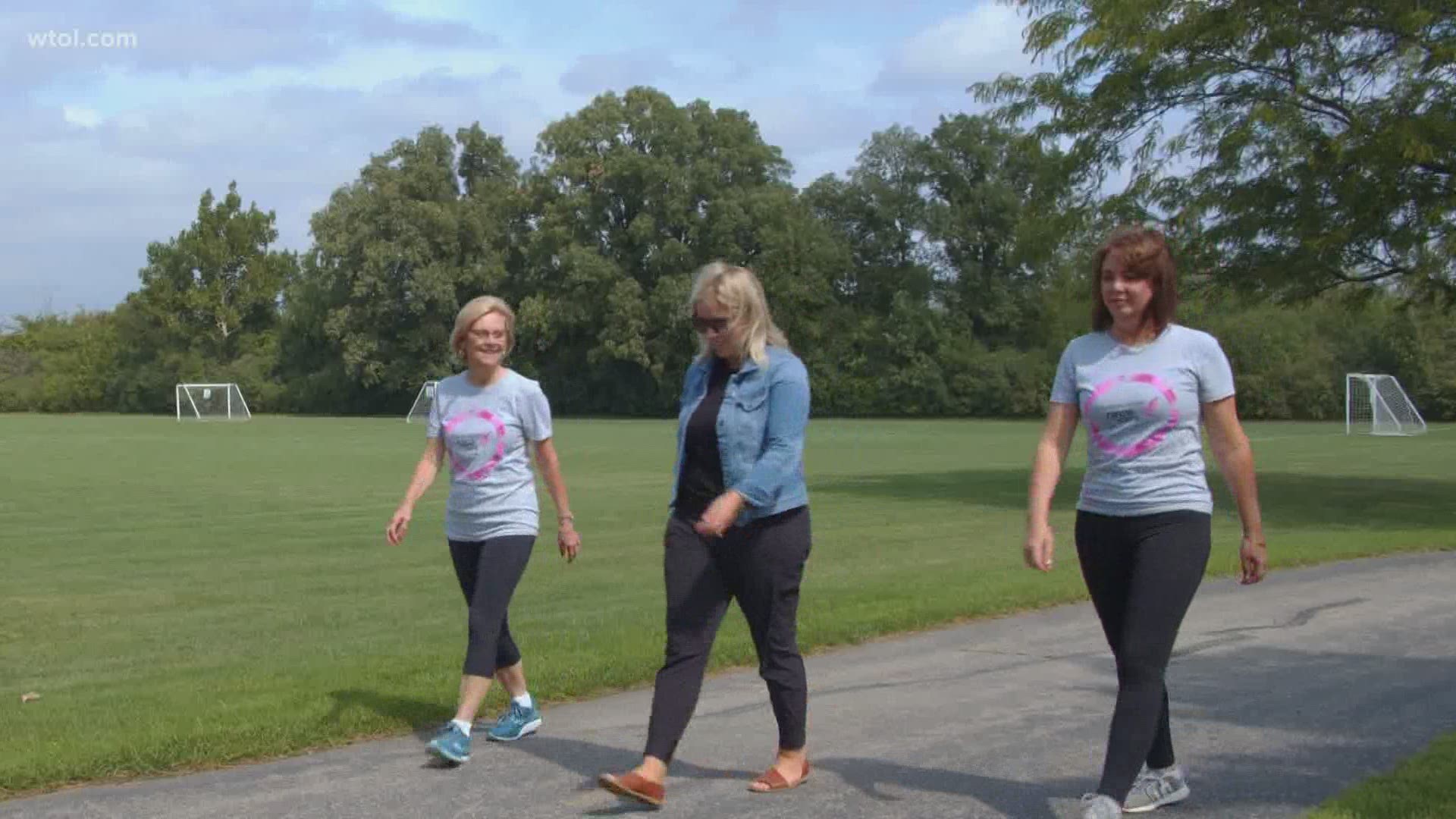TOLEDO, Ohio — This year's Race for the Cure looks nothing like last year's. Coronavirus took our crowds and our hugs, but not our will to fight.
In 2020, we're walking on our own, or socially distanced, but we're still moving one foot in front of the other toward a cure.
My walk took me to Susan G. Komen Northwest Ohio's executive director, Mary Westphal, who says we have to keep moving forward.
"Explain some of the challenges the organization has experienced in the last six months or so," I asked her.
"Certainly, like all businesses and organizations, the pandemic has really changed the way we do our business. And our fundraising is primarily done through the Race for the Cure, and we do know that this year as we've gone virtual, we'll see some different numbers in that Race for the Cure, but we still have a lot of people that have registered. People are walking in their neighborhoods and they're walking or running at home, so that is good.
Definitely, we're seeing a shift in our numbers, but our work is still very important and our breast cancer survivors are still very much in need of our services. Nothing has changed on that front, and in fact, our breast cancer survivors may have a greater need right now because they're losing their jobs, they're losing their insurance, there are less resources available in the community. So, now more than ever, it's important to line and support the good work we do locally and the good work we do in research to find a cure for breast cancer," Westphal said.
Westphal said 16,000 to 20,000 people might be in a sea of pink any given year. But only half of those register and pay the fee, which goes toward research, mammograms, direct care and awareness.
"It is important for people to realize that $30 registration fee is another way that offers direct support to funding our important programs. So, when people register, pay their $30 registration fee, when they ask their friends to support them through fundraising and they make a personal self-donation, those things make a difference.
One of the things that concern me most as I walk is how much survivors are empowered by the race every year.
Seeing fellow survivors, getting a shot of support and celebrating their victory, it just brings so much hope," said Gretchen Awad with Susan G. Komen Northwest Ohio.
Awad is positive survivors and metastatic survivors are still feeling connected.
"What are you guys doing now that everything has to be virtual to continue reaching out to those groups?" I asked Awad and Westphal.
"We are doing wonderful things to connect with our survivor community and engaging our community that's living with stage 4 metastatic breast cancer," Awad said.
She said many participated in the spirit weeks leading up to the race and are excited about incorporating a virtual component even after the pandemic.
"I think we've had really, really positive feedback from those who are enjoying the virtual and we will always recognize that those living with breast cancer and metastatic have compromised immune systems. So, while we are excited to get back to hopefully in-person Race For the Cure next year, I don't think that we will ever step away from having a virtual component and making sure people can engage with Komen Northwest Ohio however they are comfortable," Awad said.
I also wanted to know how the nonprofit, which is such a resource for survivors will continue to be there with a greater need and fewer dollars to give.
"What is gonna be the path forward, do you think for Komen, out of this?" I asked.
"I think that remains to be seen, right? I do think that Komen will continue to have a very important local presence and I do think that we will see some shift in the way that we do business. And I think we are always going to stay committed to delivering direct service and saving lives in that fight against breast cancer," Westphal said.
And that's a fight that will continue until there's no longer a need for a Race for a Cure.
MORE RACE FOR THE CURE STORIES:

